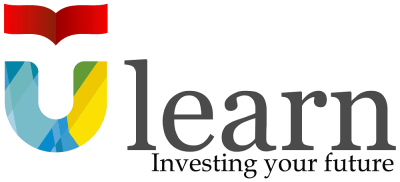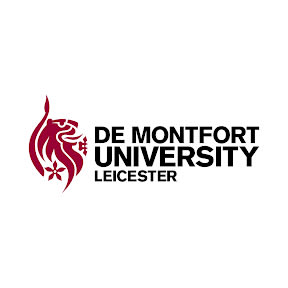
MA International Relations - (De Montfort University)
Ulearn

Key Information
Campus location
Leicester, United Kingdom
Languages
English
Study format
On-Campus
Duration
1 - 2 year
Pace
Full time, Part time
Tuition fees
GBP 6,000 / per year *
Application deadline
Request info
Earliest start date
Request info
* UK/EU students per year. International students: £13,600
Scholarships
Explore scholarship opportunities to help fund your studies
Introduction
Overview

Reasons to study International Relations at DMU:
On this course, you will develop an advanced understanding of key global issues such as globalisation, international political economy, security, health and the role of states and non-state organisations.
There is wide diversity in the range of study, from international relations theory to regional integration. It will provide you with an advanced level of understanding of the modern world, including the way in which states, regions and international organisations interact.
- Wide variety of modules: Provides the opportunity to study a wide variety of fascinating modules
- Learn from internationally renowned staff: You will study in a research-rich academic environment with the opportunity to be taught by internationally renowned staff and to participate in research seminars, conferences and annual lectures
- Add international experience to your CV: You will have the opportunity to take part in #DMUglobal overseas study trips.
- Excellent student experience: Benefit from the input of high profile visiting scholars, academic staff with wide geographical subject coverage and the opportunity to participate in study trips abroad.
Key facts for UK/EU students
- Institution code: D26
- Programme code: L25071
- Start date: September 2019
- Duration: One year full-time, two years part-time
- Location of study: Faculty of Business and Law, Hugh Aston Building
- Fees and funding: £6,000
Key facts for international students
- Institution code: D26
- Programme code: L25071
- Start date: September 2019
- Duration: One year full-time
- Location of study: Faculty of Business and Law, Hugh Aston Building
- Fees and funding: 2019/20 entry: £13,600
Structure and assessment
Course modules
Theory and Practice of International Relations – This module will provide you with an advanced understanding of international relations theory and its relationship to the contemporary world. The module starts by introducing the subject discipline of international relations and emphasises the significance and relevance of theory in explaining the contemporary world. The module then provides an understanding of the key theories and evaluates the main differences between the competing positions. By doing so, you will gain an understanding of how the practices of international relations are informed by theoretical perspectives.
Globalisation – Globalisation affects business and society at all levels. In this module, you will gain an understanding of the historical background to globalisation as well as an understanding of the economic, political and commercial contexts of globalisation. You will develop an awareness of globalisation debates together with an understanding of the effects of globalisation on various actors and an awareness of the relationship between globalisation and business.
Research Methodology – This module presents research in management and business as a strategic activity that occurs within the context of limited resources and within a framework of ethical, legal and social constraints. Attention is focused on data collection techniques appropriate for research in management and business, along with techniques for the analysis of quantitative and qualitative data.
You will also select four elective modules which might include:
- Post-Cold War World Order
- US Foreign Policy
- Regional Security in the European Neighbourhood
- Britain and European Integration
- International Trade
- Global Health: Politics, Policy and Strategy
- International Human Resource Management
Dissertation: You must also undertake a dissertation, providing an invaluable opportunity to work in-depth on a particular aspect of any international relations topic of your choice. You will need to apply and enhance your technical knowledge and critical awareness in a subject of your choice.
Note: All modules are subject to change in order to keep the content current.
Teaching and assessment
Teaching will be delivered through formal lectures, informal seminars, tutorials, workshops, discussions and e-learning packages. Assessment will usually be through a combination of individual and group work, presentations, essays, reports and exams.
Teaching contact hours
Full-time option
For the full-time option you should be prepared to devote approximately 38 hours a week to your studies. You will typically have up to 14 hours of contact hours of teaching most weeks for semester 1 and 2. Teaching is through a mix of lectures, tutorials, seminars and lab sessions and the breakdown of these activities is shown in each module description.
In addition, each module provides a 2-hour surgery each week available for individual consultation with the lecturer. You may also have some scheduled meetings with your programme leader, personal tutor, and/or careers throughout the year to discuss your academic progress and personal development.
Self-directed study: In order to prepare for, and assimilate, the work in lectures and seminars you will be expected to make regular use of our on-line resources, participate in classroom discussions including on our virtual learning environment (VLE) and engage in personal study, revision and reflection for approximately 24 hours per work during semester 1 and 2.
In semester 3, you will undertake independent research for your dissertation (or In-company project) and again should typically allow around 38 hours per week for this. You will be allocated a dedicated academic supervisor to support you, who you will be able to contact on a regular basis.
Part-time option
For the part-time option, you should be prepared to devote approximately 19 hours a week to your studies. You will typically have up to 7 hours of contact hours of teaching most weeks. Teaching is through a mix of lectures, tutorials, seminars and lab sessions and the breakdown of these activities is shown in each module description.
In addition, each module provides a surgery hour each week available for individual consultation with the lecturer. You may also have some scheduled meetings with your programme leader, personal tutor, and/or careers throughout the year to discuss your academic progress and personal development.
Self-directed study: In order to prepare for, and assimilate, the work in lectures and seminars you will be expected to make regular use of our on-line resources, participate in classroom discussions including on our virtual learning environment (VLE) and engage in personal study, revision and reflection for approximately 12 hours per work during teaching weeks.
Once you have completed all the taught modules, you will then undertake independent research for your dissertation (or In-company project), and should typically allow around 19 hours per week for this. You will be allocated a dedicated academic supervisor to support you, who you will be able to contact on a regular basis.
|
MichaelGaida / Pixabay

Opportunities and careers
#DMUglobal
This is our innovative international experience programme which aims to enrich your studies and expand your cultural horizons – helping you to become a global graduate, equipped to meet the needs of employers across the world.
Through DMU Global, we offer a wide range of opportunities including on-campus and UK activities, overseas study, internships, faculty-led field trips and volunteering, as well as Erasmus+ and international exchanges.
Graduate careers
The course prepares you for senior roles in public and private organisations where you can influence major decisions that affect us all.
There is a real demand for suitably qualified managers who are interested in making a difference and who understand the implications of the global financial crisis, climate change, diplomacy, and sustainable development, health care and other issues affecting contemporary society.
Entry criteria
Applicants will normally hold an undergraduate degree in any subject with a minimum pass of 2:2, or equivalent overseas qualification.
Applications from those with significant professional experience in politics and international relations will be considered individually.
English Language requirements
If English is not your first language, an IELTS score of 6.0 (including a minimum of 5.5 in each component) or equivalent is normally required.
English language tuition is available at DMU both before and during the course if required.